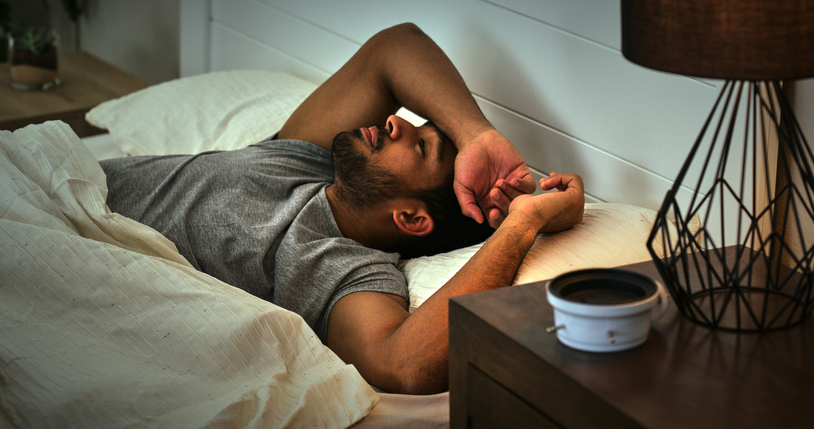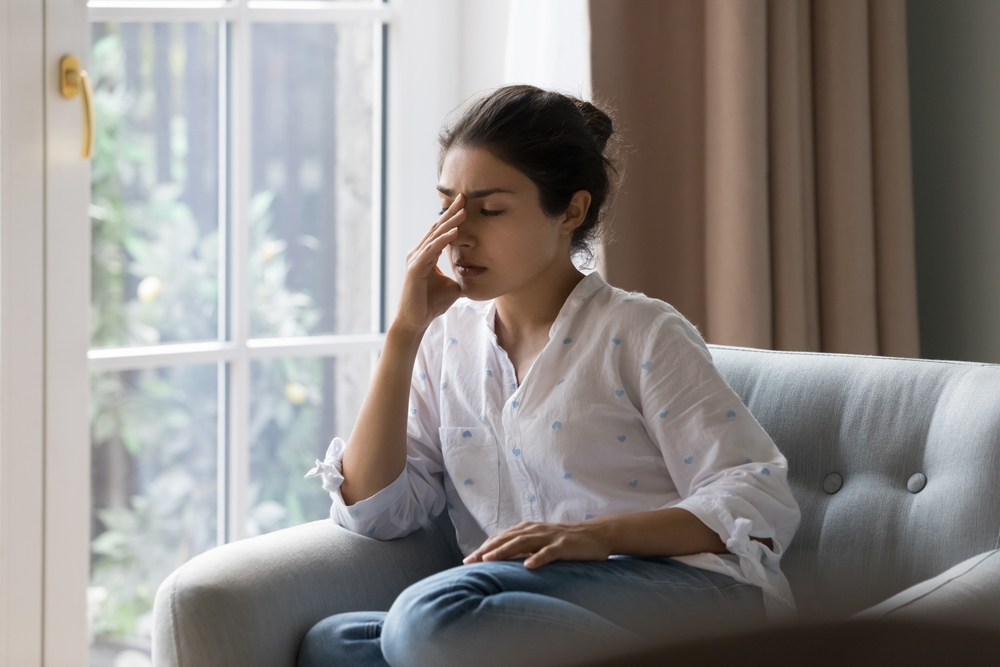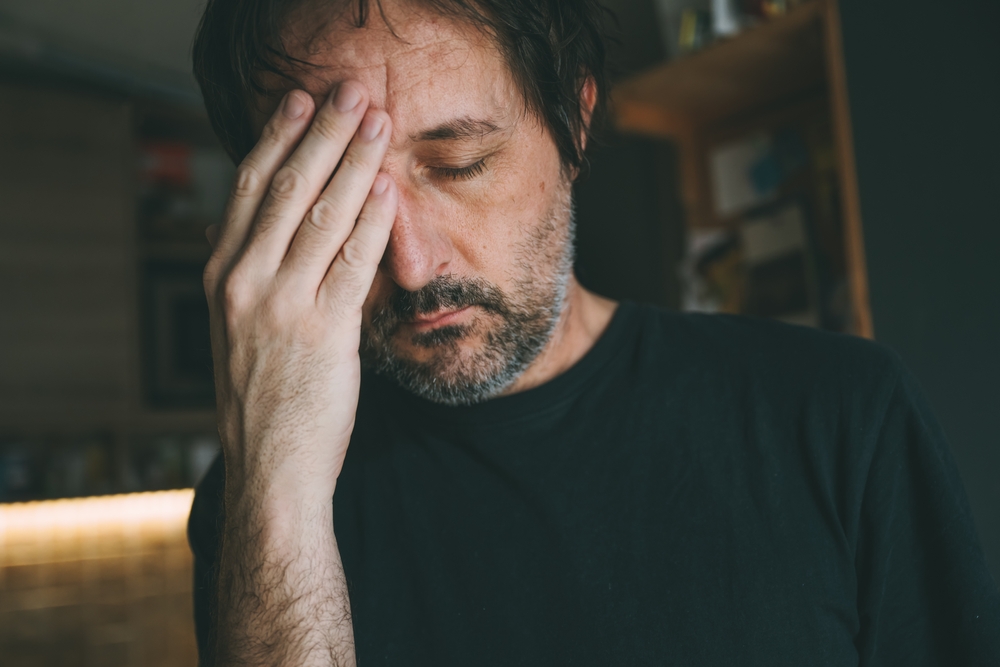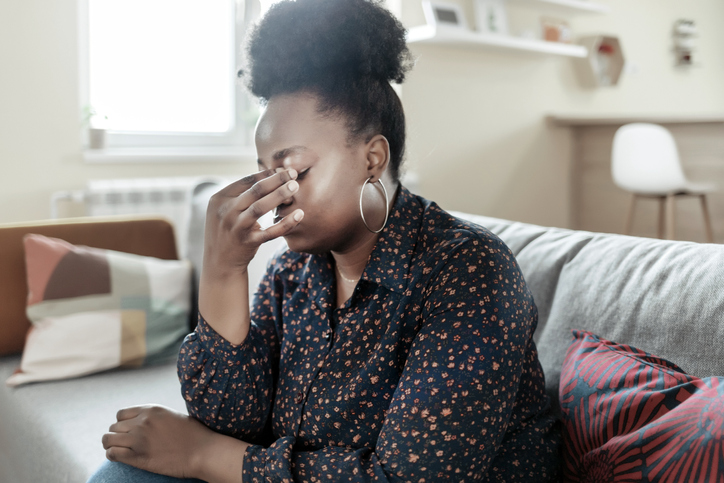We all experience anxiety from time to time. But for some people, anxiety can be more intense or frequent than what’s typically considered “normal.” If you’ve ever wondered whether your anxiety levels might be above average, this list might provide some insights. If you’re concerned about your anxiety levels, it’s always best to consult with a mental health professional.
1. You’re always extremely early

Being on time is great, but if you find yourself arriving excessively early to appointments or events due to a fear of being late, it might be anxiety-driven. This behavior often stems from a need for control and a fear of negative consequences or judgment. For example, maybe you grew up with parents who didn’t give you dinner if you didn’t make it to the table on time. Try talking to a mental health professional about these issues.
2. You can’t seem to catch any Z’s

According to the Cleveland Clinic, anxiety and sleep troubles often go hand in hand. If you find yourself lying awake at night, mind racing, unable to shut off your thoughts, or if you wake up frequently with worry, it could be a sign of above-average anxiety. This sleep disruption can create a vicious cycle—lack of sleep can just make your anxiety levels even worse.
3. You have a deep need to be perfect

You find yourself paralyzed by the fear of making mistakes or obsessing over minor details. Can we tell you a secret? That might indicate higher anxiety levels. This perfectionism can manifest in various areas of life, from work to personal relationships, and worse, can lead to procrastination or avoidance of tasks altogether.
6. You always think there’s something wrong with you

It’s normal to be concerned about health! But if you find yourself constantly worried about your physical well-being, interpreting minor bodily sensations as signs of serious illness, or frequently seeking medical reassurance, it could be health anxiety, a specific form of anxiety disorder.
7. Your phone is a huge source of stress

If you feel panic when you can’t immediately respond to a message, or if you’re constantly checking your phone for updates or potential problems, it might indicate higher anxiety levels. Conversely, you might also feel anxious about using your phone, fearing negative interactions or information.
8. You panic in social situations

Do you find yourself overthinking every social interaction, replaying conversations in your head, or avoiding social situations altogether? If social anxiety is a frequent companion, causing you to feel excessively self-conscious or fearful of judgment in social settings, it could be a sign of above-average anxiety.
9. Your to-do list is super detailed

Feel compelled to make extensive, detailed lists for even simple tasks? Or are you constantly planning and organizing to feel in control? If you answered yes, then it might be your anxiety talking. While being organized is a good thing, when it becomes an obsessive need to control every aspect of your life, it can be a sign of heightened anxiety.
10. You’re not sure how to relax

Do you find it difficult to truly relax, even when you have downtime? If you’re always fidgeting, feeling restless, or unable to sit still and enjoy a quiet moment, it could be a sign of higher anxiety levels. This constant state of tension can be both mentally and physically exhausting.
11. You have aches and pains

According to Harvard Health, anxiety isn’t just in your head—it can manifest physically too. If you frequently experience symptoms like rapid heartbeat, sweating, trembling, or stomach issues without an apparent physical cause, it could be your body’s way of expressing anxiety. This can be distressing, sometimes even mimicking more serious health conditions.
12. Your mind never shuts up

Your brain feels like it’s running a 24/7 talk show, constantly rehashing worries or potential scenarios. When your internal monologue is always on high alert it’s often a sign of higher-than-average anxiety. This non-stop mental chatter can be exhausting, making it difficult to focus on the present moment or relax.
13. You constantly cycle through “what if” scenarios

If your mind regularly jumps to the most catastrophic possible outcomes, even for mundane situations, you might be dealing with higher levels of anxiety. This tendency to catastrophize can make even small decisions feel overwhelmingly stressful.
14. Your self-care routine seriously stresses you out

We all know self-care is important. But people with high anxiety levels take it to the extreme—obsessing over health routines, diet, or exercise to the point where it causes more stress than relaxation. This can manifest as rigid adherence to routines or excessive worry about the consequences of skipping a workout or eating the “wrong” foods.








